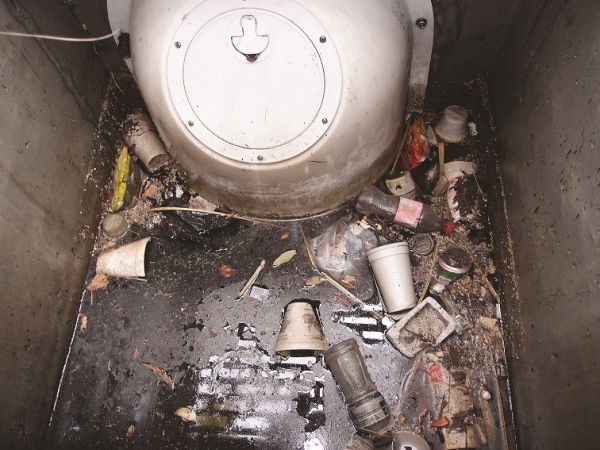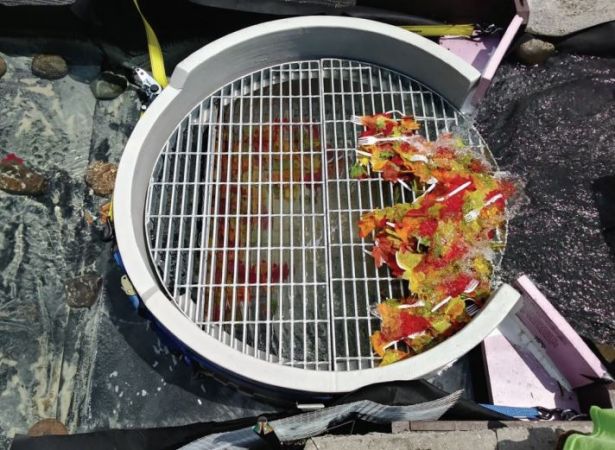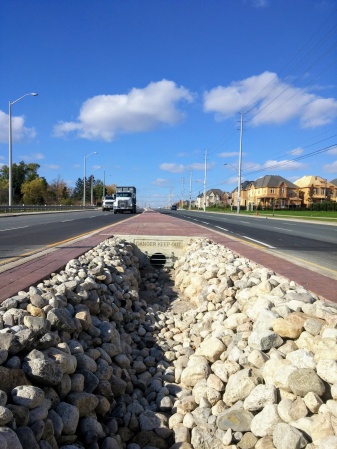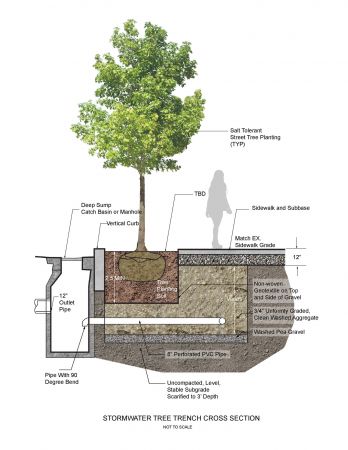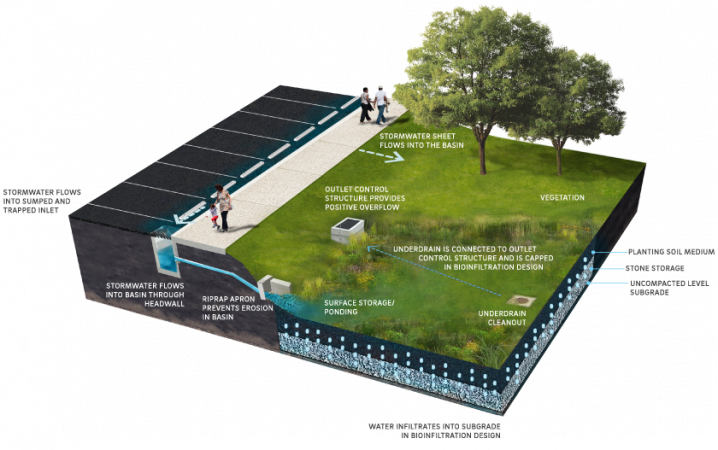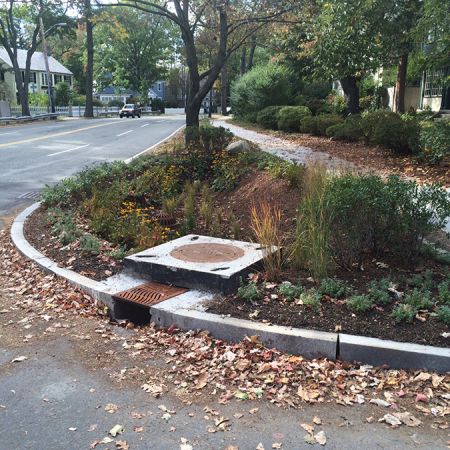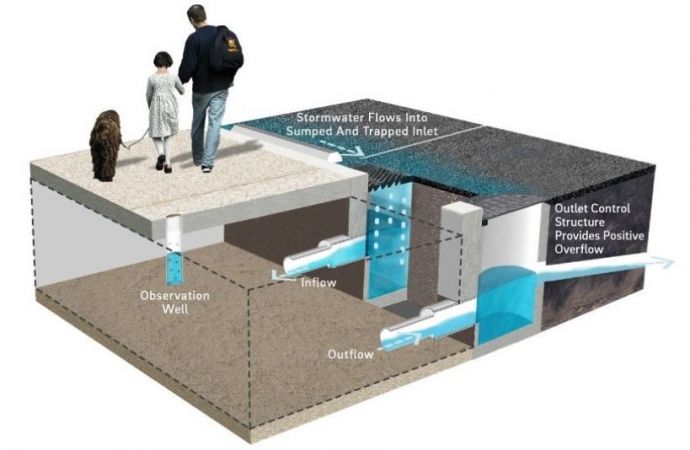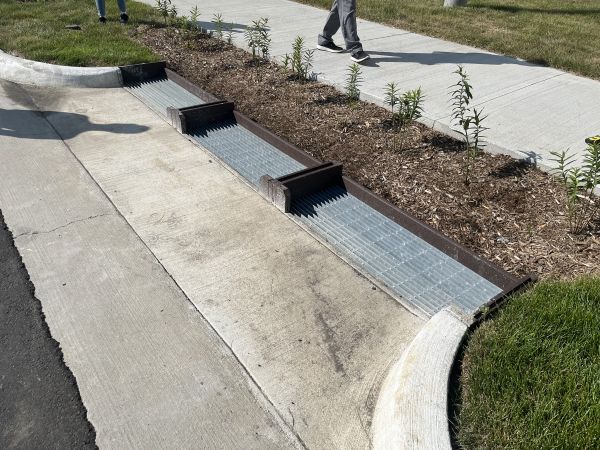Inlet sumps: Gallery
This pretreatment device, known as a baffle helps to remove trash, oil, TSS, larger sediments (silts, sands, etc.) and other floatables in roadway catch basins. This picture was taken of a SNOUT BAFL in Myrtle Beach, S.C. (Mullen, 2022)[1]
Example of an overland flow sump, capturing stormwater runoff from the adjacent roadway. This example showcases a Rain Guardian(TM) Turret structure with a metal grate overtop to capture larger floatables, trash and detritus from entering a stormwater facility or in this case a bioretention LID feature[2].
A stormwater tree trench, including a sump inlet design used as part of pretreatment. The feature is located in the City of Cambridge, Massachusetts, US. The design was developed and lead by HDR Inc., and Halvorson, Tighe & Bond Studio (Halvorson, Tighe & Bond Studio, n.d.)[3]
Example of a sump inlet being used in conjunction with a large bioretention basin feature, located in park space receiving stormwater off of the adjacent roadway (Source: Philadelphia Water Department, n.d.)[4]
An inlet sump leading into a bioretention bump out for traffic calming. Inlet sumps help both settle and separate sediment from stormwater road runoff before depositing excess sediment and silt into an infiltration BMP. These sumps allow stormwater to flow into the feature through an underdrain pipe (Source: NACTO, 2017)[5]
Example of a sump inlet allowing sediment to settle out of influent stormwater before entering a large infiltration chamber housed under the parking lot (Source: Philadelphia Water Department. 2020)[6]
Example of a proprietary inlet device known as a Rain Guardian Bunker, that was installed at the Morningside Extension Project in Scarborough, ON.
- ↑ Mullen, T.J. Prioritizing trash capture and clean oceans: Stormwater hoods and traps lead the way in effectiveness. The Municipal magazine. June 1, 2022. Accessed: https://www.themunicipal.com/2022/06/prioritizing-trash-capture-and-clean-oceans-stormwater-hoods-and-traps-lead-the-way-in-effectiveness/
- ↑ Erickson, A.J. and Hernick, M.A., 2019. Capture of Gross Solids and Sediment by Pretreatment Practices for Bioretention. Accessed: https://conservancy.umn.edu/handle/11299/201607
- ↑ Halvorson, Tighe & Bond Studio. n.d. Halvorson, Tighe & Bond Studio. Retrieved from: https://www.halvorsondesign.com/willard-street-drainage
- ↑ Philadelphia Water Department. n.d. Chapter 4 Stormwater Management Practice Guidance 4.1 Bioinfiltration/Bioretention. Retrieved from: https://water.phila.gov/development/stormwater-plan-review/manual/chapter-4/4-1-bioinfiltration-bioretention/
- ↑ National Association of City Transportation Officials (NACTO). 2017. Urban Street Stormwater Guide - Inlet Design. Retrieved from: https://nacto.org/publication/urban-street-stormwater-guide/stormwater-elements/bioretention-design-considerations/inlet-design/
- ↑ Philadelphia Water Department. 2020. Stormwater Management Guidance Manual: Version 3.2. Accessed from: https://www.pwdplanreview.org/upload/manual_pdfs/PWD-SMGM-v3.2-20201001.pdf
